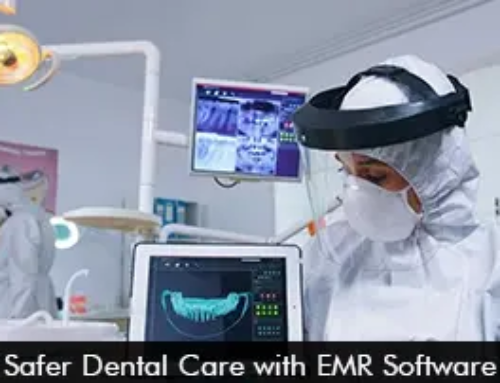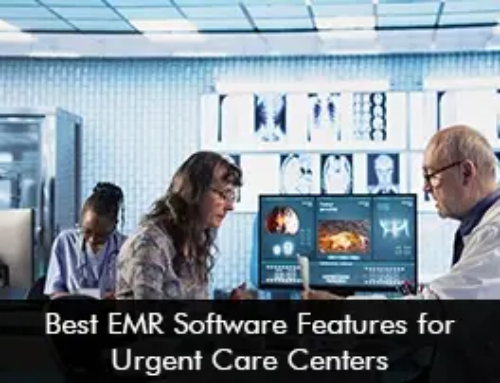Electronic Medical Records (EMR) Software systems have transformed how healthcare practices operate. The robust and efficient technology has helped practices streamline administrative, clinical, and financial workflows through automation. EHR software benefits differ across practice sizes, and in this article, we will discuss the advantages of EMR systems for small and independent practices.
Small practices have different sets of challenges and goals. As a small provider, you want a cost-effective solution that also offers security and easy accessibility to patient data to enhance patient care.
Essential EHR Software Features for Small Practices
The following are key functionalities that small medical practices should always look for in an electronic medical records solution:
- Order Entry
- Clinical Interoperability (A government-funded research report revealed that by 2024 the US Department of Health and Human Services says that interoperability will be a critical capability between disparate EHRs)
- Patient Portal to support patient engagement
- Charting
- Patient Records
- Automated Coding Assistance
- Decision Support Tools
Top 5 Advantages of EMR Software Systems for a Small Clinic
Implementing an Electronic Health Records Software solution can help small clinics immediately through accurate medication lists, improved charting processes, and reduced transcription costs. In the end, as a small provider, you aim to keep your costs low to be competitive in the healthcare sector.
Labor is reduced
Labor-intensive tasks and daily workflows are streamlined through powerful features present in the software system. Patient data can be quickly reviewed and front desk staff member has to spend less time calling patients and sending appointment reminders to them. This helps the employee to focus on other important tasks such as improving patient services to enhance overall patient experience. Through the templates feature in the EMR software the documentation process is simplified and the small provider can offer undivided attention to their patient which is the ultimate goal of any doctor.
Resource consumption is minimized
Since the patient data is stored in the system and most forms can be filled online the need to print physical copies and store paper forms is reduced which enhances efficiency levels. Unnecessary and duplication of lab orders is also reduced.
Improved data collection opportunities
Reports can be generated quickly with minimum hassle. These reports provide a view into financial and performance metrics to see where the practice is standing and what needs to be done to reach a specific benchmark. The robust analysis feature in the EHR software provides a more detailed view of the data trends to be analyzed.
Patient care is enhanced
As a small and independent practice, you want your patients to be satisfied and stay loyal to you. When an electronic health records solution is deployed it helps practices to improve care delivery by offering better medication management and prompt diagnosis of various health conditions.
Lower operational costs
As records are kept in one place these software systems help to reduce operational costs. Overtime expenses can also decline which ultimately can reduce the financial pressure on small medical setups.
Cloud-based EMR Software systems a Better Choice for Small Practices
Independent and small practices should go for a cloud-based EHR software solution. Cloud-based systems are more affordable and simple to install and maintain which is what most small clinics desire.
On the other hand, a server-based software system might not be the right option for a small practice as thousands of dollars need to be spent on installation and implementation. By opting for a cloud-based technology small practices can reap the benefits of cost savings on installation and maintenance and also achieve HIPAA compliance to help protect patient data around the clock. So it will be a win-win situation for any practice!








